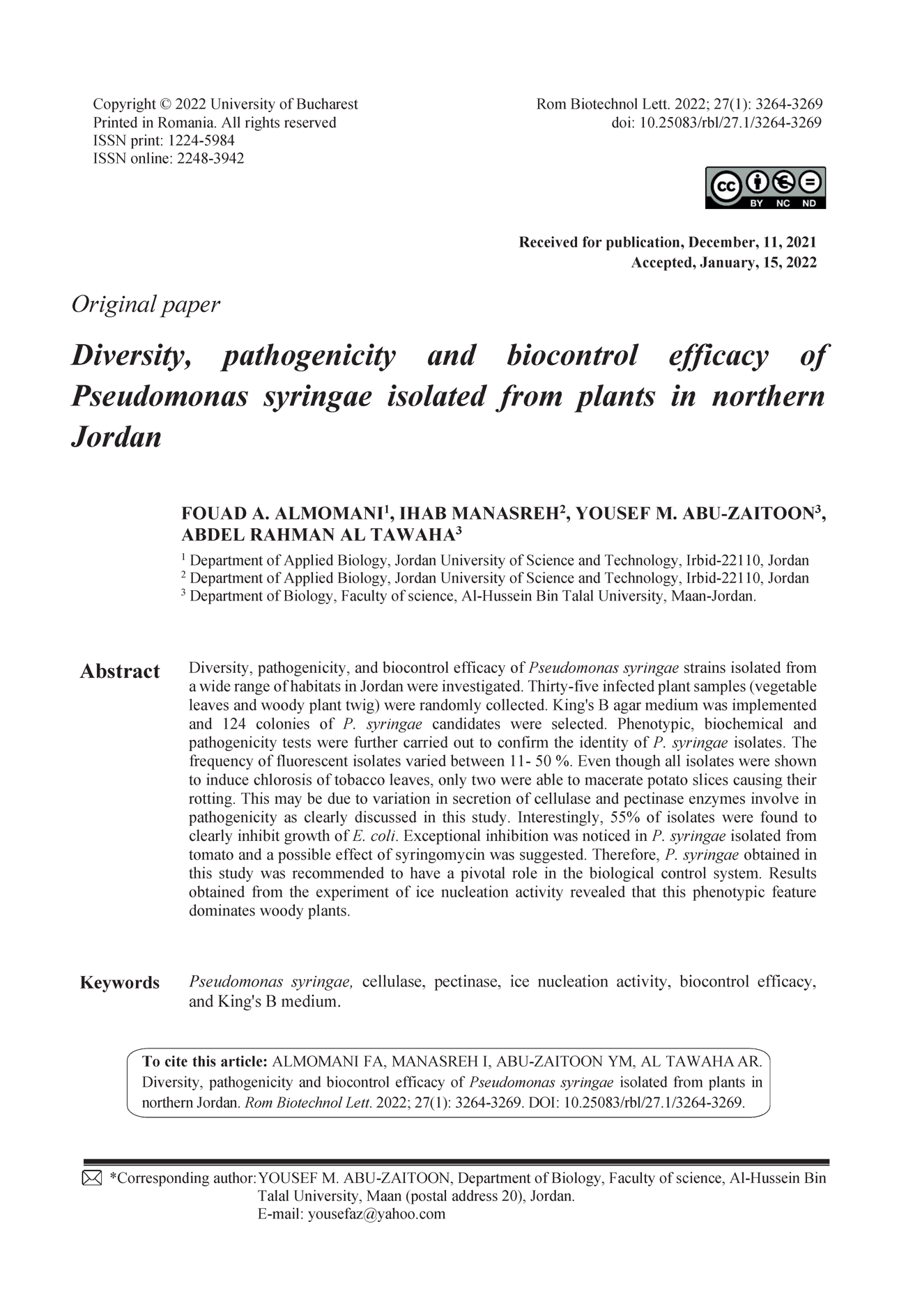Diversity, pathogenicity and biocontrol efficacy of Pseudomonas syringae isolated from plants in northern Jordan
DOI:
https://doi.org/10.25083/rbl/27.1/3264-3269Cuvinte cheie:
Pseudomonas syringae, cellulase, pectinase, ice nucleation activity, biocontrol efficacy, King's B mediumRezumat
Diversity, pathogenicity, and biocontrol efficacy of Pseudomonas syringae strains isolated from a wide range of habitats in Jordan were investigated. Thirty-five infected plant samples (vegetable leaves and woody plant twig) were randomly collected. King's B agar medium was implemented and 124 colonies of P. syringae candidates were selected. Phenotypic, biochemical and pathogenicity tests were further carried out to confirm the identity of P. syringae isolates. The frequency of fluorescent isolates varied between 11- 50 %. Even though all isolates were shown to induce chlorosis of tobacco leaves, only two were able to macerate potato slices causing their rotting. This may be due to variation in secretion of cellulase and pectinase enzymes involve in pathogenicity as clearly discussed in this study. Interestingly, 55% of isolates were found to clearly inhibit growth of E. coli. Exceptional inhibition was noticed in P. syringae isolated from tomato and a possible effect of syringomycin was suggested. Therefore, P. syringae obtained in this study was recommended to have a pivotal role in the biological control system. Results obtained from the experiment of ice nucleation activity revealed that this phenotypic feature dominates woody plants.




